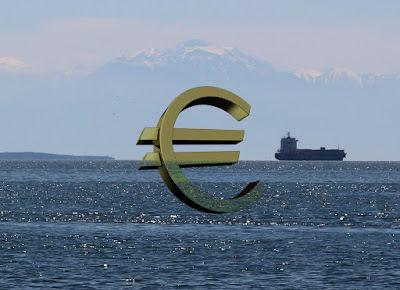The financial crisis makes a European Army more likely
The financial crisis is likely to have lasting impact on defence budget and strategies in countries like the UK. Not only the current budget deficits mean that some countries have to reduce their defence spending immediately, but this reduction may be sustained for a long period because as countries de-leverage, GDP growth is likely to stabilize at a lower level than before the crisis. This will require to rethink defence spending and strategy within the European Union.
National armies in the EU can be divided into several groups:
- UK and France, the two main forces, have nuclear deterrant and ability to deploy troops overseas.
- Italy, Germany and Spain have limited armies, only able to operate within an international coalition structure
- Smaller countries rely on International coalitions like NATO to defend themselves
The inevitable reduction in defence spending should be seen as an opportunity to reorganise EU defence in a more efficient way via specialisation:
- Joint UK/France nuclear force. Nuclear capacity is imperative as more powerful nations emerge (Russia, China, India, Brazil). UK and France could jointly take responsibility for this. In practice, UK and France could share operational costs and development costs could be partially funded by EU budget. Having 4 submarines shared between the two countries, ensuring always one in patrol, versus the current 4+4=8 would make significant cost savings. The EU funding could be backed by an International Treaty whereby the nuclear countries would commit to using the nuclear force if any EU country was attacked.
- A powerful and highly flexible EU conventional army should be built with each country providing their share. Although each country would be allowed to spin-off their soldiers to proceed with independant wars/fights or not to participate in an EU led war, this conventional army would be build around an EU structure and command. This structure would mean huge savings for both operational and development costs. In order to encourage countries who currently spend very little (less than 1% of GDP) into defence to spend more, the command structure should be weighted by the contribution of each country.
Of course, challenges exist:
- UK feels anti-european. One of the worst-hit by the financial crisis, the UK cannot afford to carry on both to maintain its nuclear force and to send thousands of troops abroad. So it has three choices:
1. Stop participating in overseas operations and build Forteress Britain. But this protectionism would be against Britain's culture and history.
2. Drop its nuclear branch and focus on being a more efficient partner to the US, thus relying on the USA for its defence. Britain would in this case keep its International Voice, but would surrender part of its sovereignty.
3. Join the EU defence model.
- Europeans never agree on anything.
Although the challenges of building a credible European Army are real, the multiple threats facing European Countries will make it inevitable. The sooner we start, the better.


